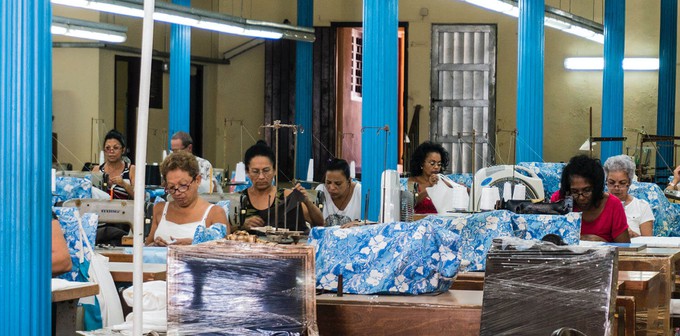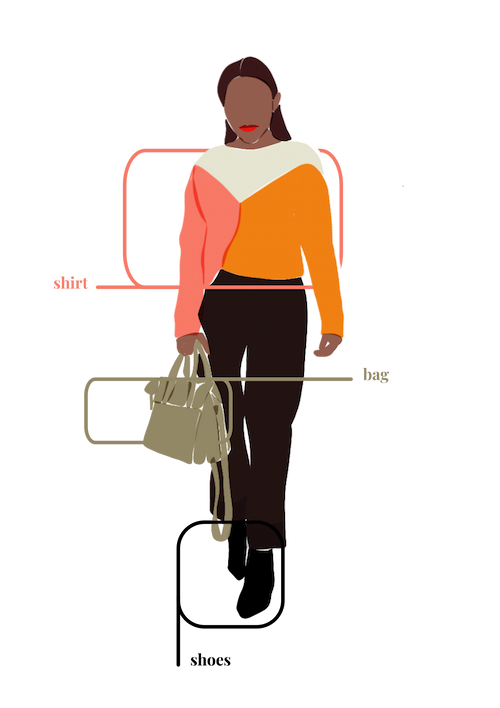- Clothes
- Bags
- Accessories
-
Inspiration
- Shoes
6 Human Activities Affecting the Environment: How Clothes Fit In

When talking about human activities that impact the environment, it’s easy to focus on industries and realities that feel so far away, as if we had nothing to do with them.
Don’t get me wrong: there are many factors feeding into it (and governments, relevant organizations, and companies should take more serious responsibility).
One of them is much closer than you think, though: the clothes in our wardrobes.
In fact, the fashion industry contributes to all these human activities that impact the environment.
So, let’s roll up our sleeves, open our eyes to its hidden cost, and discover how we can make a difference.
6 human activities that impact the environment & the role of the fashion industry

1. Deforestation and habitat destruction
The breakneck expansion of urban areas and infrastructure has reshaped our landscapes, leading to habitat fragmentation and deforestation. Trees are also chopped down to gain more cropland and pasture.
Sadly, this is causing biodiversity loss and a higher risk of extinction for certain species.
Because forests produce oxygen and absorb carbon dioxide, deforestation worsens climate change, too.
How fashion contributes to deforestation and habitat destruction
Fast fashion relies heavily on cotton, which despite being a natural fabric, has a terrible impact on the planet.
Not only does it cause soil degradation (which we’ll look at soon): it’s often linked to deforestation to make room for those crops. For example, some factories supplying brands like Zara and H&M relied on cotton from illegal deforestation in Brazil.
The livestock used for fabrics like wool and leather has an impact on this, too.
2. Industrialisation and greenhouse gas emissions
This human activity impacts the environment in many negative ways, but one of them is its reliance on fossil fuels (like coal, oil, and natural gas) for energy, transportation, and production.
Because the combustion of these non-renewable resources releases large amounts of greenhouse gasses, the price of all this (unsustainable) economic growth and technological advancements is… air pollution and climate change.
Also, smog and acid rain affect both human health—from respiratory problems to cardiovascular diseases—and the environment, disrupting ecosystems and polluting water.
How fashion contributes to greenhouse gas emissions
This industry is responsible for 10% of greenhouse gas emissions from human activity. Because fast fashion brands, in particular, prioritise synthetic fabrics, 40% comes from polyester manufacturing alone.
And since these fibres release volatile organic compounds, they contribute to air pollution even further.
On top of that, many fast fashion brands use toxic dyes and chemicals as well as factories in developing countries with poor environmental regulations.
3. Agricultural practices and soil degradation
Monoculture, overgazing, heavy use of pesticides and fertilizers… Intensive farming is causing soil degradation, which makes land less and less fertile and is one of the biggest contributors to climate change.
It also ruins ecosystems and pollutes water, which harms both wildlife and human health.
How fashion contributes to agricultural practices and soil degradation
Once again, cotton is the biggest culprit, especially because it uses 6% of the world’s pesticides and 16% of all insecticides.
4. Water pollution and contamination
From improper industrial waste disposal to sewage and (once again) agriculture and farming, these human activities impact the environment by polluting our precious water.
This ruins ecosystems, disrupts the food chain, and contaminates potable water.
Sadly, 2 billion people haven’t got access to safe drinking water, and this exposes them to horrible diseases (like cholera and hepatitis A) and causes higher child mortality.
How fashion contributes to water pollution and contamination
Many factories—especially in developing countries lacking strong environmental regulations—are releasing their untreated wastewater back into bodies of water. This is even turning some rivers blue and making their water as alkaline as bleach.
On top of that, synthetic fibres (like polyester) shed microplastics whenever you wash them, which eventually find their way to the ocean and fishes’ bellies.
5. Overfishing and farming
To keep up with the unsustainable demand for meat and fish, these practices have become industrialised and too intensive.
Fishing is ruining the delicate balance of marine ecosystems, destroying habitats, disrupting the food chain, and putting several species at risk of extinction.
As for livestock, it’s the world’s largest user of agricultural resources and lands. As teased before, it also causes soil degradation and deforestation, and because cows, in particular, release a lot of methane, it’s responsible for over 12% of global greenhouse gas emissions (once again, worsening climate change).
How fashion contributes to overfishing and farming
While fashion isn’t directly responsible for overfishing, its microplastics and toxic dyes and chemicals are worsening that negative impact on marine life and ecosystems.
As for farming, livestock is also used for fabrics like leather (and no, it’s not always a by-product).
6. Overproduction
Companies are producing new stuff without worrying about the environmental cost of making it and, most importantly, what happens to it afterwards.
Sadly, this causes resource depletion (= consuming natural resources faster than they can be replenished) and unsustainable quantities of waste.
And this waste releases harmful substances into the soil—contaminating water resources and impacting both biodiversity and human health—and into the air, with these greenhouse gases contributing to climate change.
How fashion contributes to overproduction
Fast fashion THRIVES on overconsumption! These brands want you to treat their cheap clothes as disposable so you keep buying them. The result?
92 million TONNES of waste per year (the equivalent of a truck full of clothes being dumped into landfills every second).
And these clothes are usually made from non-biodegradable materials. So, they can stick around in landfills for centuries, and they pile up in bodies of water and land too (for example, the mountain of discarded clothes in the Atacama desert in Chile can literally be seen from space!).
How you can reduce the impact of these human activities that affect the environment, using your wardrobe

Let me be clear: the biggest responsibility is—or better, should be—on the entities and huge companies that are having the worst impact on the environment.
However, we can do our part, too. When it comes to clothes:
- Start seeing them as durable (not throwaway pieces), and remember: the most sustainable garment is already in your wardrobe
- Buy less but better, investing in high-quality clothes that match your style and you can see yourself rewearing for years
- Demand transparency, and don’t let fast fashion brands trick you with their sneaky greenwashing tactics
- When you do buy new clothes, choose sustainable fabrics (like organic cotton, recycled materials, vegetable-tanned leather or the most eco-friendly vegan alternatives), and support ethical brands that make their garments with both the planet and people in mind
Unfortunately, these human activities impact the environment in horrible ways, and the fashion industry is guilty too.
We can choose to vote with our money and make a difference, though. One (repeat) outfit at a time.
Share our story
Related articles
Fast Fashion's Environmental Impact: Your Clothes' Real Cost
Low price tags, HIGH cost for the planet. Here’s a jargon-free overview of fast fashion’s environmental impact—and what YOU can do about it.
WORST Fabrics for the Environment (& Greener Alternatives)
There are other factors to consider, but these are definitely some of the worst fabrics for the environment. Find out some kinder options, too.
Fashion & Climate Change: What Planet Is Your Wardrobe On?
From high carbon emissions to unsustainable waste, the thread tying fashion and climate change is scarily strong, but here’s what you can do to help.
Project Cece is a platform that collects ethical fashion from vetted brands and shops in one place. Browse ethical fashion for women and men and find items that fit your style, budget and values!

_large.png)


